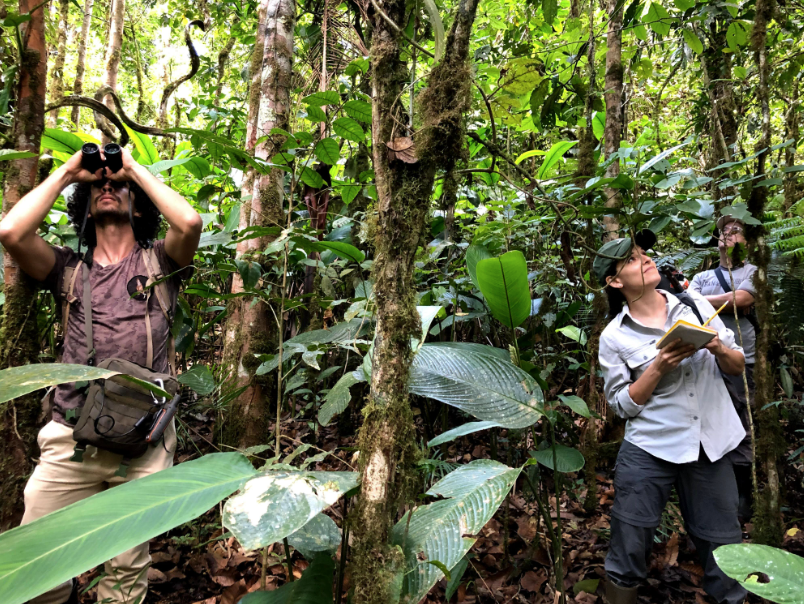Mesoamerican oak tree species in urgent need of conservation, according to milestone report
-
Country
United States of America -
Region
North America -
Workstream
Saving Plants -
Type
Press Release -
Source
BGCI Member
News Published: 01 October 2024
Over a third of threatened or understudied oak tree species in Mesoamerica are not held in managed botanical collections anywhere in the world, and for many species, protection of their native habitats is lacking.
These are among the findings in a new Conservation Gap Analysis of Native Mesoamerican Oaks, published in English and Spanish, which was conducted by researchers at The Morton Arboretum. Researchers stress in the report being released during National Hispanic Heritage Month in the U.S. that it’s critically important to conserve these trees now before land-use conversion, climate change and other threats further alter their natural environments. Mesoamerica is the region extending from the U.S.-Mexico border through Panama.
Oaks are valuable keystone species that perform critical ecosystem functions and provide food and habitat for myriad animals.
“Mesoamerica is a global hotspot for oak biodiversity,” said report lead author Kate Good, the Arboretum’s global tree conservation research program manager. “In the face of climate change and habitat degradation, there is an urgent need to increase the number of Mesoamerican oaks in collections within their native country to help prevent further biodiversity loss.”
As of 2022, 22 species, or 37%, are not held in managed botanical collections anywhere in the world.
“We hope this report can help identify potential areas for collaboration and set conservation priorities, both in native habitats and managed botanical collections,” Good said.

The report focuses on 59 species in the region on the International Union for Conservation of Nature (IUCN) Red List of Threatened Species assessed as either threatened or Data Deficient. The IUCN Red List is the globally recognized and standardized system for assessing the extinction risk of the world’s plant, animal and fungal species.
Climate change was identified as a threat for all 59 threatened or Data Deficient Mesoamerican oak species. Additionally, agriculture and residential or commercial development represented threats to 72% and 69% of the species, respectively.
Overall, the report indicates that 85% of the analysed oak species are projected to see a decrease in the areas they are most commonly found under climate conditions predicted for the years 2061-2080. A decrease in a species’ preferred “life-zone area” does not necessarily mean it will no longer survive in the new environment, according to the report. However, it does mean conservation activities are strongly needed to prevent potential biodiversity loss. Education, outreach, research and propagation or breeding programs were the most commonly cited priorities in the report for future conservation efforts. The analysis also showed 16, or approximately one quarter, of the target species have less than 10% of their native range in protected areas.
Become a Member
Be part of the largest network of botanic gardens and plant conservation experts in the world by joining BGCI today!
Support BGCI
You can support our plant conservation efforts by sponsoring membership for small botanic gardens, contributing to the Global Botanic Garden Fund, and more!